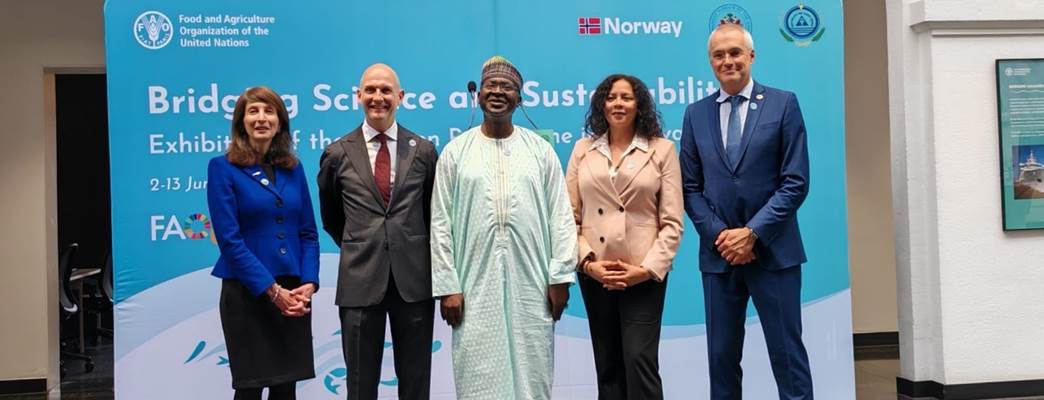STATEMENT
Bridging Science and Sustainability.
Opening of the Exhibition of the Nansen Programme at the WTO Atrium.
Statement delivered by Ambassador Tormod C. Endresen, Permanent Representative of Norway
2 June 2025
Excellencies, Ladies and Gentlemen,
Glad to welcome you along with my good colleagues from Cabo Verde, the Gambia and FAO.
Whenever we Norwegians feel that we come from a small country – we think of our maritime boundaries. Because - thanks to a very long coastline – our maritime jurisdiction is around five times as large as our territory. That is why we count ourselves a maritime nation. And our open economy started right there, maybe a thousand year ago, with export of cod to far away shores. Later, building on our experiences as fishermen, we became good at other things too, out at sea. International shipping, aquaculture, oil and gas, everything subsea and offshore wind. The maritime competence weaves like a strong thread throughout Norway’s history.
Among the most important things we learned along the way was that if managed wisely – fish stocks can be a real renewable resource, something that keeps giving. By way of example - the parts of the north Atlantic cod stock that we help manage, is thriving and in a strong position, while sadly depleted in other areas.
Sustainable management of marine resources has become an important part also of our foreign policy. To drive development, to enhance food security. But importantly because we realize that healthy oceans is an existential question for humankind.
That is why we co-chair the High-level Panel for a Sustainable Ocean Economy (‘the Ocean Panel’), which will press for results at the Ocean Conference in Nice next week. And why fisheries management has been a key theme in our development cooperation efforts for decades.
Established 50 years ago, in 1975, the Nansen Programme stands as one of the world's longest-running fisheries development initiatives. Central to the Programme's success is the research vessel, named after the polar explorer and humanitarian Fridtjof Nansen. In fact, three successive vessels bearing Nansen’s name have been mapping marine resources and conducting scientific surveys in no less than 60 countries, covering more than 70,000 sampling stations and recording over 5,000 fish species.
The whole idea has always been to share our knowledge and conviction: That you need data and a scientific basis to manage fish stocks. If everyone is out fishing with no regulation, irreparable harm can be done to resources that do not belong to any one generation – but that should be sustained and passed on.
It makes a lot of sense that we are here at the WTO talking about this. Sustainable management is at the very core of the Fisheries Subsidies Agreement – and I thank all of you for all the work that has gone into that.
As we commemorate the 50 years, lets recommit to what the Nansen Programme is about: to ensure that our oceans remain healthy, productive, and resilient, securing food and nutrition for generations to come.
Thank you.
